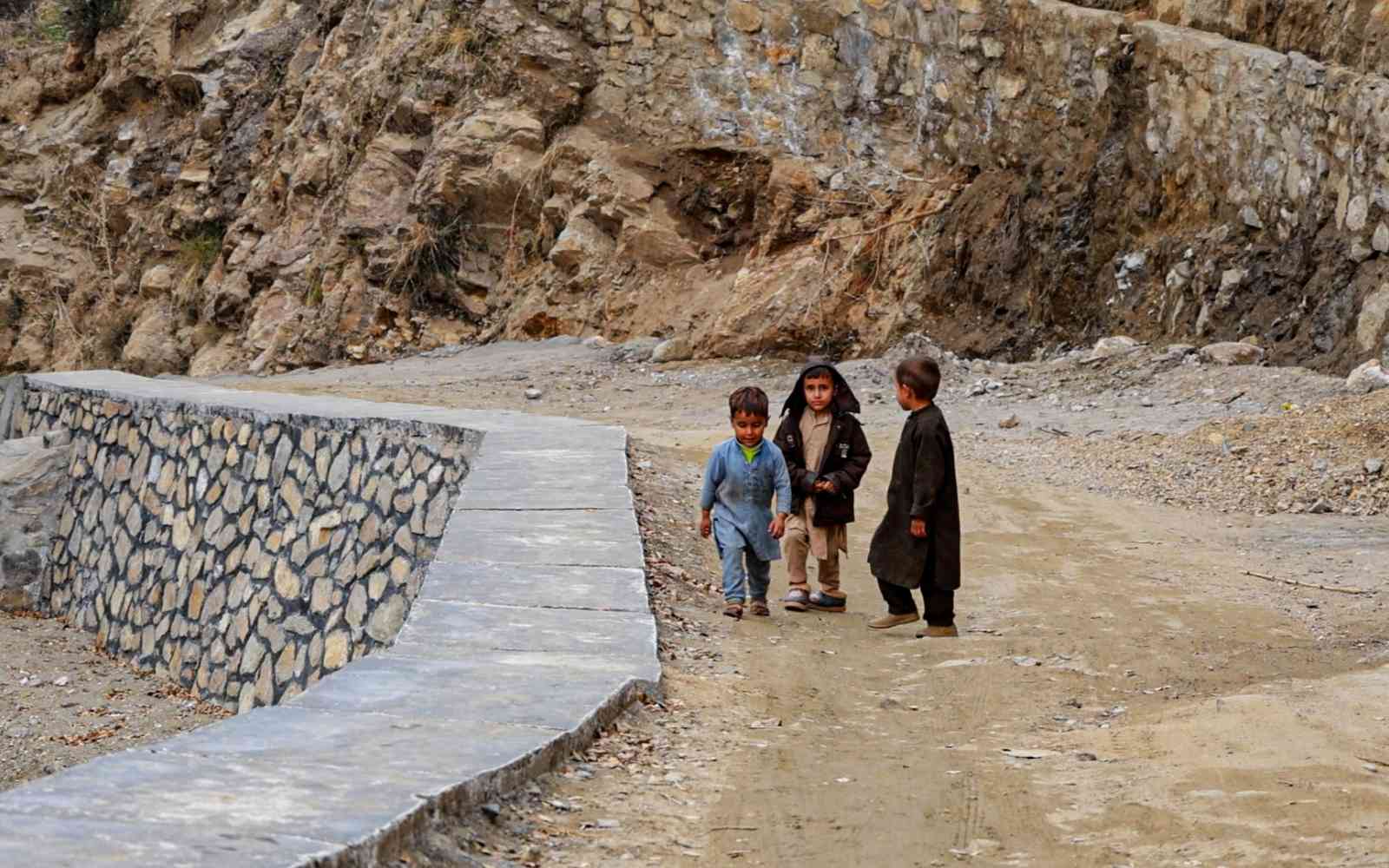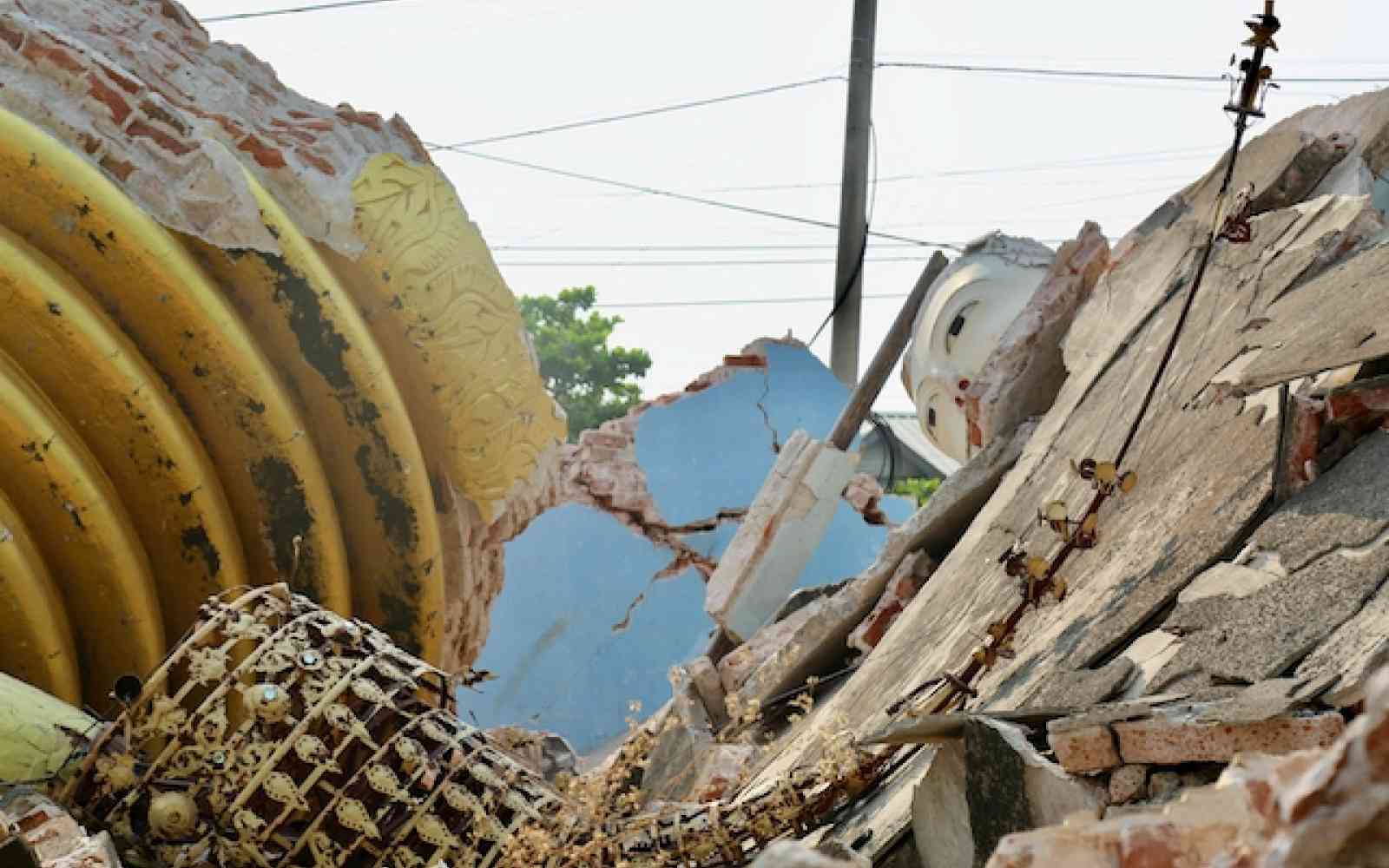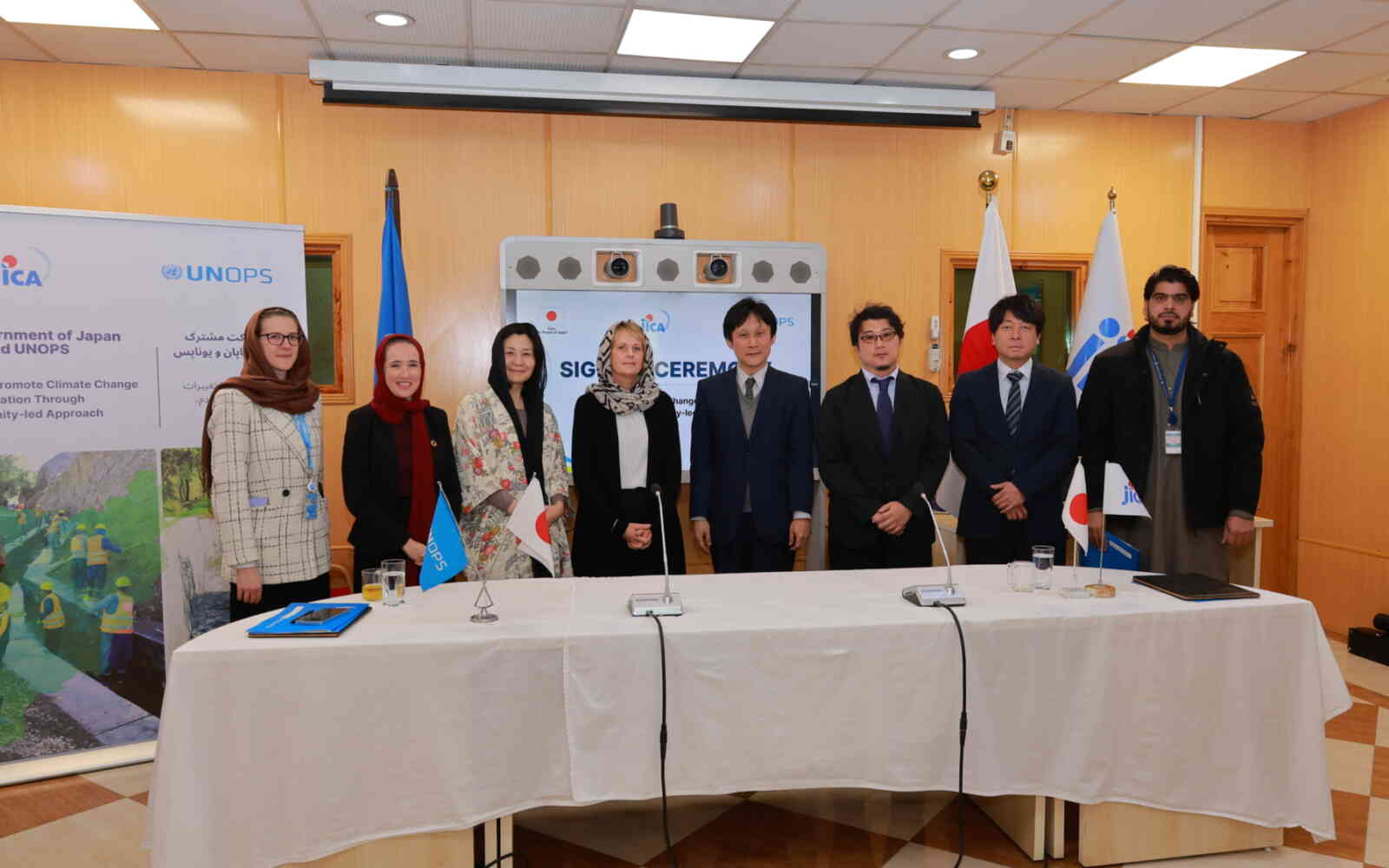The United Nations Office for Project Services (UNOPS)
Providing solar power to underserved schools in Pakistan

A new project will benefit nearly 2,000 primary schools in the country.
In Pakistan, a lack of basic facilities in government schools contributes to low enrolment and high dropout rates – a problem that is especially severe in remote areas.
UNOPS, the United Kingdom’s Department for International Development (DFID) and the Saudi Fund for Development (SFD) are aiming to change this. On 13 February 2018, the three organizations signed an agreement to implement a project that will use solar energy to improve education.
As part of the project, nearly 2,000 government schools in Khyber Pakhtunkhwa Province will be fitted with off-grid solar power systems that will provide a renewable, sustainable source of electricity. More than 700 of these schools are girls’ schools with a total enrolment of more than 81,000.
“A lack of proper school facilities affects the health, behaviour, engagement, learning success and achievement of students,” said Sanjay Mathur, UNOPS Asia Region Director. “If the schools can save money on power, that additional money can be invested into other areas of teaching and learning.”
The project will target schools in seven of the province’s most underserved districts: Bannu, Dera Ismail Khan, Hangu, Karak, Kohat, Lakki Marwat and Tank.
With about $8.5 million worth of joint support from DFID and SFD, UNOPS will implement the project in partnership with the Khyber Pakhtunkhwa Education Department.










